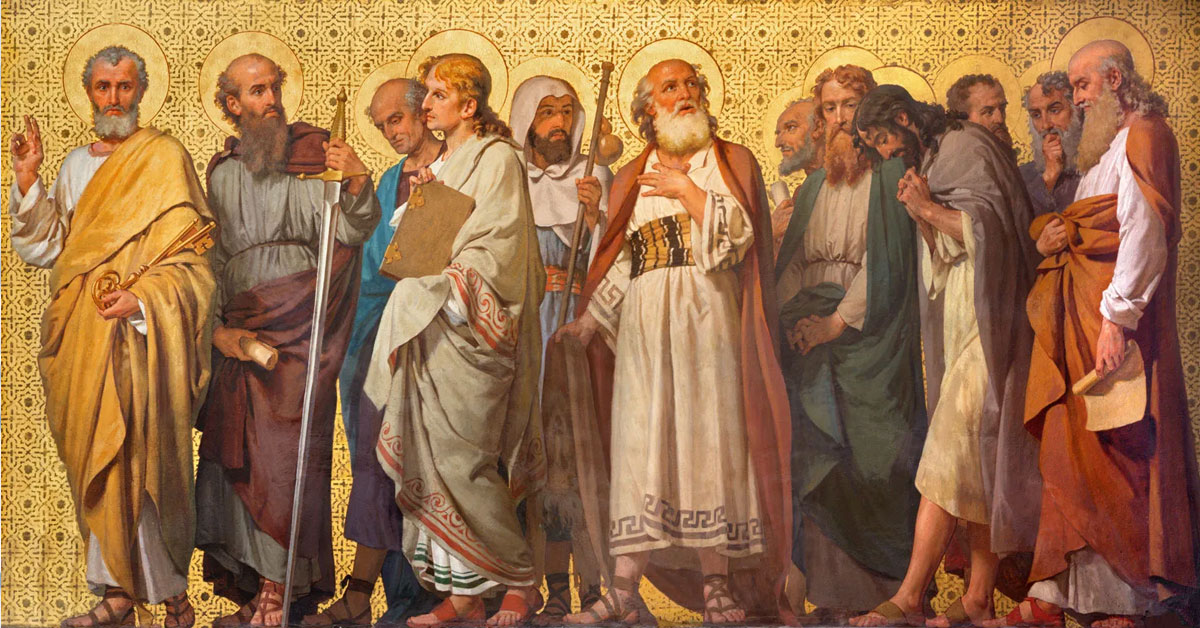We quote from a sermon by Robert Bennett called “Seven Churches:”
In the first three chapters of Revelation, there are seven churches named after seven cities in Asia Minor, “seven” being a symbol of completeness. A list of those seven churches is given in Revelation 1:11.
We understand these to be seven physical churches that were established, but also that they prophetically represented seven stages in time of the one true church, which began at Pentecost and will end when the last faithful follower of Jesus dies and is resurrected in heaven.
In Revelation, each church is given a message, and each message takes a similar form. The message is given by our Lord Jesus to a messenger who is then told to write certain things about that church, beginning with a description of the Lord and followed with things which he either approves or disapproves in that church. Each message ends with a promise to those who are overcomers.
The first church discussed is Ephesus. Its message is given in Revelation 2:1-7. It begins with a view of our Lord in which he calls himself the one who holds the seven stars in his right hand and walks among the candlesticks.
The symbolic meaning of this statement was previously explained in Revelation 1:20. The seven golden candlesticks are seven churches, and the seven stars are the messengers to those churches. Our Lord praised the church at Ephesus for their labor and their patience.
He speaks of how they could not bear evil and resisted those who claimed to be apostles, those who claimed to be sent from God, but they were really liars who would have led the church into other paths and for other purposes. He praises their patience or their patient endurance in walking in this narrow way. They fainted not.
All of this gives us a picture of a church that was healthy and strong. After the holy spirit came to them at Pentecost, those of the Ephesus stage zealously went forward to fulfill the Lord’s great commission as given in Mark 16:15. But unfortunately, this ideal condition did not last.
We know that during this period a falling away had already begun. Both the Apostle Paul and the Apostle Peter warn of false teachers that would arise from within the church itself. The Apostle John told them that these were antichrists and they were among them even then.
And notice that in 1 Corinthians 11.19, it says these things were necessary to test the loyalty and the steadfastness of the church. This falling away is implied in the next part of the message to Ephesus. Revelation 2:4-5 speaks of those who left their first love who no longer walk in the narrow way of sacrifice following in the footsteps of Jesus. The love of this world and the things therein drew them away.
The harbor in the city of Ephesus is a wonderful illustration of this gradual falling away. The Hastings Dictionary of the Bible describes how the harbor required constant dredging because of the alluvial deposits made by the river Kastor. However, as the Roman Empire declined, the region lost the regulating influence Rome provided. One of the things that fell by the wayside was the dredging of this harbor. Gradually it became smaller and smaller until eventually it was abandoned.
Because of those alluvial deposits, Ephesus is actually now several miles away from the sea. And so likewise there was a slow filling of the church with earthly influence and desires, like a metaphorical “silt” which slowly displaced the water of the truth.
In Revelation 2:6, the church at Ephesus is praised for hating the deeds of the Nicolaitans. The word “Nicolaitans” means a follower of Nicholas. “Nicholas” in turn comes from a combination of Greek words that gives us the thought of “victorious over the people.” This seems to point to those who desire to be in a superior position?those who desire to have power and control over others. They seek to lord it over the Lord’s flock. See 1 Peter 5:1-3.
The name “Ephesus” predates the Greek language so scholars have had a hard time defining it.
Thayer’s Greek-English Lexicon and others say it means “permitted,” which seems to come from the legend that Hercules permitted the Amazons to settle there. However, Easton’s Bible Dictionary says that in the time of the Romans, Ephesus bore the title of the first and greatest metropolis in of Asia, the most desirable.
The Ephesus stage of the church was the desirable place to be because it had the oversight of the apostles. They were all present and guiding and teaching the church. In turn, the apostles themselves were guided by our risen Lord. Remember Revelation 1:20 said that our Lord held them in his right hand. Our Lord assured us that these apostles would be guided by the holy spirit so that what they taught would be in harmony with the divine plan (Matthew 18:18).
We understand the messenger of the “Ephesus stage” of the true church to be the Apostle Paul. In Acts 19:15, he was specifically chosen by God for this work. As that chosen vehicle, he was instrumental in the rapid spread of the gospel, establishing numerous congregations during his journeys. He wrote the majority of the New Testament. Through his writings, we’ve been given a complete and vital explanation of the plan of God.
Additional Resources:
PDF Booklet: “Revelation: How to Study & Have it Make Sense”
PDF Booklet: “Revelation Topical Study”
PDF Book: “The Keys to Revelation”














